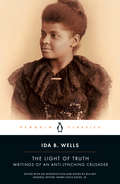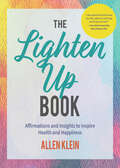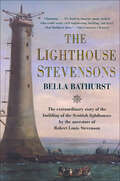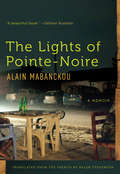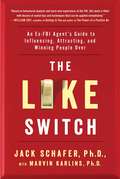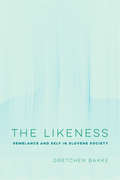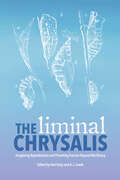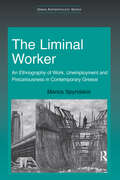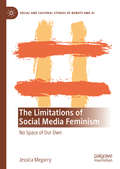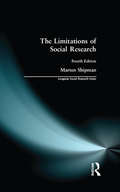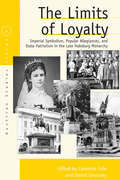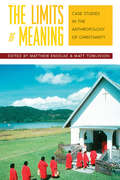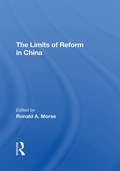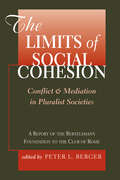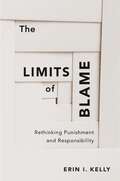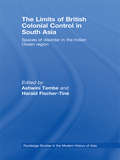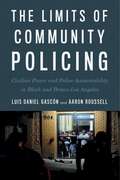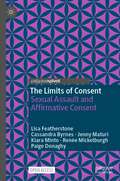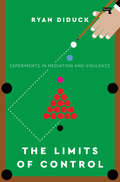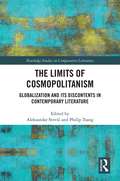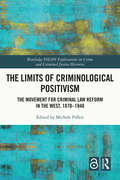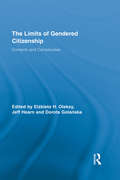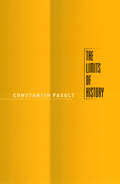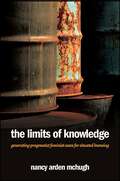- Table View
- List View
The Light of Truth: Writings of an Anti-Lynching Crusader
by Ida B. WellsThe broadest and most comprehensive collection of writings available by an early civil and women&’s rights pioneerSeventy-one years before Rosa Parks&’s courageous act of resistance, police dragged a young black journalist named Ida B. Wells off a train for refusing to give up her seat. The experience shaped Wells&’s career, and—when hate crimes touched her life personally—she mounted what was to become her life&’s work: an anti-lynching crusade that captured international attention.This volume covers the entire scope of Wells&’s remarkable career, collecting her early writings, articles exposing the horrors of lynching, essays from her travels abroad, and her later journalism. The Light of Truth is both an invaluable resource for study and a testament to Wells&’s long career as a civil rights activist.For more than seventy years, Penguin has been the leading publisher of classic literature in the English-speaking world. With more than 1,700 titles, Penguin Classics represents a global bookshelf of the best works throughout history and across genres and disciplines. Readers trust the series to provide authoritative texts enhanced by introductions and notes by distinguished scholars and contemporary authors, as well as up-to-date translations by award-winning translators.
The Lighten Up Book: Affirmations and Insights to Inspire Health and Happiness
by Allen KleinInspirational Words to Meditate OnIf you liked Healing After Loss by Martha W. Hickman and Together is Better by Simon Sinek, you’ll love The Lighten Up BookAn Upbeat Guide to Positivity in the Midst of Chaos: Allen Klein is the world's only "Jollytologist". As a keynote speaker and bestselling author, he has mastered the art of choosing the right quote at the right time. In The Lighten Up Book, he has gathered his favorite wise words to help readers power their lives with the positive. We have all weathered a lot of storms in recent times, literally with hurricanes, earthquakes, floods, and what seems like unrelenting strife in our daily discourse. We all need reminders of what we truly value in our life – family, friendship, community, leadership, service, helping others.An Inspirational Book for the Ages: As inspirational as it is instructive, The Lighten Up Book is a treasury of moving and meaningful sayings that spurs readers to live life to the fullest. Readers can take this encouraging book on the go to get a quick shot of inspiration at any time, or they can select one quote every day for in-depth thought and meditation. However readers choose to use these uplifting and inspiring quotes, they all have the potential to be life-changing.The Lighten Up Book offers endless encouragement. The quotes in this book will help you to:Feel inspiredRecover from lossGet back up after a hard day knocks you downAnd much more!
The Lighthouse Stevensons
by Bella BathurstThe “flamboyant and elegantly written saga” of the legendary author's family and their lifesaving nautical advances across eighteenth century Scotland (Publishers Weekly).For centuries the seas around Scotland were notorious for shipwrecks. Mariners had nothing to aid their navigation but a single coal-fire light on the east coast, which was usually extinguished by rain. In 1786 the Northern Lighthouse Trust was established, with Robert Stevenson appointed as chief engineer a few years later. In this engrossing book, Bella Bathhurst reveals that the Stevensons not only supervised the construction of the lighthouses under often desperate conditions but also perfected a design of precisely chiseled interlocking granite blocks that would withstand the enormous waves that batter these stone pillars. The same Stevensons also developed the lamps and lenses of the lights themselves, which "sent a gleam across the wave" and prevented countless ships from being lost at sea. While it is the writing of Robert Louis Stevenson that brought fame to the family name, this mesmerizing account shows how his extraordinary ancestors changed the shape of the Scotland coast against incredible odds and with remarkable technical ingenuity.
The Lights of Pointe-Noire: A Memoir
by Alain MabanckouA dazzling meditation on home-coming and belonging from one of &“Africa&’s greatest writers&” and the Man Booker International Prize finalist (The Guardian). Alain Mabanckou left Congo in 1989, at the age of twenty-two, not to return until a quarter of a century later. When he finally came back to Pointe-Noire, a bustling port town on the Congo&’s southwestern coast, he found a country that in some ways had changed beyond recognition: The cinema where, as a child, Mabanckou gorged on glamorous American culture had become a Pentecostal church, and his secondary school has been renamed in honor of a previously despised colonial ruler. But many things remain unchanged, not least the swirling mythology of Congolese culture that still informs everyday life in Pointe-Noire. Now a decorated writer and an esteemed professor at UCLA, Mabanckou finds he can only look on as an outsider in the place where he grew up. As he delves into his childhood, into the life of his departed mother, and into the strange mix of belonging and absence that informs his return to the Republic of the Congo, his work recalls the writing of V. S. Naipaul and André Aciman, offering a startlingly fresh perspective on the pain of exile, the ghosts of memory, and the paths we take back home. Grand Prize Winner at the 2015 French Voices Awards &“This is a beautiful book, the past hauntingly reentered, the present truthfully faced, and the translation rises gorgeously to the challenge.&” —Salman Rushdie &“A tender, poetic chronicle of an exile&’s return.&” —Kirkus Reviews
The Like Switch: An Ex-FBI Agent's Guide to Influencing, Attracting, and Winning People Over (The Like Switch Series #1)
by Marvin Karlins Jack SchaferFrom a former FBI Special Agent specializing in behavior analysis and recruiting spies comes a handbook filled with his proven strategies on how to instantly read people and influence how they perceive you, so you can easily turn on the like switch.The Like Switch is packed with all the tools you need for turning strangers into friends, whether you are on a sales call, a first date, or a job interview. As a Special Agent for the FBI’s National Security Division’s Behavioral Analysis Program, Dr. Jack Schafer developed dynamic and breakthrough strategies for profiling terrorists and detecting deception. Now, Dr. Schafer has evolved his proven-on-the-battlefield tactics for the day-to-day, but no less critical battle of getting people to like you. In The Like Switch, he presents these techniques for how you can influence, attract, and win people over. Learn how to think and react like your favorite TV investigators from Criminal Minds or CSI as Dr. Schafer shows you how to improve your LQ (Likeability Quotient), “spot the lie” both in person and online, master nonverbal cues that influence how people perceive you, and turn up or turn down the intensity of a relationship. Dr. Schafer cracks the code on making great first impressions, building lasting relationships, and understanding others’ behavior to learn what they really think about you. With tips and techniques that hold the key to taking control of your communications, interactions, and relationships, The Like Switch shows you how to read others and get people to like you for a moment or a lifetime.
The Likeness: Semblance and Self in Slovene Society (Ethnographic Studies in Subjectivity #13)
by Gretchen BakkeThe Likeness is a close ethnographic study of subjectivity in the former Yugoslav republic of Slovenia. In this highly imaginative work, the author argues that much of what matters in Slovenia plays out on surfaces—of people and things, systems and locations—rendering the complexity of expression external and legible, but rarely unique or original. Here likenesses are everywhere in bloom and powerfully deployed. Moving blithely from Slovenia’s most famous thinkers to its most confounding artists, from grammatical categories of number to the particularities of history, The Likeness explores alternative modes of self-expression as postsocialist Slovenia gains visibility on the world stage.
The Liminal Chrysalis: Imagining Reproduction and Parenting Futures Beyond the Binary
by Kori Doty;A.J. LowikThe Liminal Chrysalis: Imagining Reproduction and Parenting Futures Beyond the Binary is an edited collection that works to identify and deconstruct many of the countless binaries that operate within the realms of parenting and reproduction. Weaving poetry, speculative fiction, and autobiography with interviews, critical analysis, and research, the authors take as their starting place that there is magical potential and possibility in the ambiguous, disorienting spaces of the in-between and the beyond. The collection challenges the constructedness of binaries connected to sex, gender, sexuality, and parenting roles, as well as the cis-, hetero-, repro-, trans-, and amatonormativities which pervasively circulate and inform how we think about parenting and reproductive life. The collection amplifies the voices of non-binary authors among others, and tells stories of menstruation, pregnancy, abortion, assisted reproductive technologies, fertility preservation, parenthood, and activism in the face of violent binaries and reproductive injustices.
The Liminal Worker: An Ethnography of Work, Unemployment and Precariousness in Contemporary Greece (Urban Anthropology)
by Manos SpyridakisThe Liminal Worker examines the experience of work, employment, employment insecurity and precariousness in a context of high unemployment and welfare state crisis in modern Greece. A theoretically-informed, anthropological exploration of the notion of work in contemporary western society and its relation to processes of political decision making, this book challenges the mainstream conception of work as an economic or purely productive activity, presenting a comparative analysis of work as a social phenomenon. Drawing on original empirical research, it explores the key themes of the transformation, experience, meaning and narrative of work and its relation to attendant social policies. A unique examination of the complicated experience of work and labour relations within power systems, institutions and organisations, as well as the reactions and survival strategies of ordinary actors facing precariousness in their daily existence, The Liminal Worker elaborates upon the notion of the anthropology of work and investigates the connection between ethnographic data (and its critical analysis) and the formation of policy. As such, it will be of interest to anthropologists, sociologists, policy makers and geographers concerned with questions of work, labour relations and policy formation.
The Limitations of Social Media Feminism: No Space of Our Own (Social and Cultural Studies of Robots and AI)
by Jessica Megarry#MeToo. Digital networking. Facebook groups. Social media continues to be positioned by social movement scholars as an exciting new tool that has propelled feminism into a dynamic fourth wave of the movement. But how does male power play out on social media, and what is the political significance of women using male-controlled and algorithmically curated platforms for feminism? To answer these questions, Megarry foregrounds an analysis of the practices and ethics of the historical Women’s Liberation Movement (WLM), including the revolutionary characteristics of face-to-face organising and the development of an autonomous print culture. Centering discussions of time, space and surveillance, she utilises radical and lesbian feminist theory to expose the contradictions between the political project of women’s liberation and the dominant celebratory narratives of Web 2.0. This is the first book to seriously consider how social media perpetuates the enduring logic of patriarchy and howdigital activism shapes women’s oppression in the 21st century. Drawing on interviews with intergenerational feminist activists from the UK, the USA, Australia, Canada and New Zealand, as well as archival and digital activist materials, Megarry boldly concludes that feminists should abandon social media and return to the transformative powers of older forms of women-centred political praxis. This book will be of interest to scholars and students of Women’s and Gender Studies, Lesbian and Queer Studies, Social Movement Studies, Critical Internet Studies and Political Communication, as well as anyone with an interest in feminist activism and the history of the WLM.
The Limitations of Social Research (Longman Social Research Series)
by M. D. Shipman'Does the evidence reflect the reality under investigation?' This is just one of the important questions Marten Shipman asks in the fourth edition of his highly successful book, The Limitations of Social Research. Substantially revised and up-dated it probes not only the technical stages of research, but also its assumptions, procedures and dissemination.
The Limits Of Loyalty
by Daniel Unowsky Laurence ColeThe overwhelming majority of historical work on the late Habsburg Monarchy has focused primarily on national movements and ethnic conflicts, with the result that too little attention has been devoted to the state and ruling dynasty. This volume is the first of its kind to concentrate on attempts by the imperial government to generate a dynastic-oriented state patriotism in the multinational Habsburg Monarchy. It examines those forces in state and society which tended toward the promotion of state unity and loyalty towards the ruling house. These essays, all original contributions and written by an international group of historians, provide a critical examination of the phenomenon of "dynastic patriotism" and offer a richly nuanced treatment of the multinational empire in its final phase.
The Limits Of Meaning
by Matthew Engelke Matt TomlinsonToo often, anthropological accounts of ritual leave readers with the impression that everything goes smoothly, that rituals are "meaningful events." But what happens when rituals fail, or when they seem "meaningless"? Drawing on research in the anthropology of Christianity from around the globe, the authors in this volume suggest that in order to analyze meaning productively, we need to consider its limits. This collection is a welcome new addition to the anthropology of religion, offering fresh debates on a classic topic and drawing attention to meaning in a way that other volumes have for key terms like "culture" and "fieldwork.
The Limits Of Reform In China
by Ronald A. Morse Shaun MurphyFive years after Beijing's pragmatic new leadership embarked on its Four Modernizations program, the obstacles to change in China are becoming apparent, agree the contributors to this book. Focusing on developments since Mao's death and pointing to the negative effects of China's massive bureaucracy, the regime's reluctance to give up Soviet-style
The Limits Of Social Cohesion: Conflict And Mediation In Pluralist Societies
by Peter L. BergerNormative conflicts center on fundamental disagreements over issues of public morality and the identity of a society. In thinking about normative conflicts on a global scale, two principal questions arise. First, are there common characteristics of such conflicts worldwide? Second, which institutions polarize such conflicts and which can serve to mediate them? This pathbreaking book, edited by renowned sociologist Peter Berger, examines both questions through findings gained from a study of normative conflicts in eleven societies located in different parts of the world and at different levels of economic development.On both points, the findings have proved surprising. Although there are, of course, normative conflicts peculiar to individual societies, two features emerged as common to most of the societies examined: one concerns disputes over the place of religion in the state and in public life; the other is a clash of values between a cultural elite and the broad masses of the population. Often the two features coincide. For instance, in many countries the elite is the least religious group within the population, and therefore, resentments against the elite are often mobilized under religious banners.On the institutional question, the study started out with a bias toward the institutions of so-called ?civil society??that is, the institutions that stand between the personal life of individuals and the vast mega-structures of a modern society. The finding is that the same institutions can either polarize or mediate normative conflicts. The conclusion suggests one must ask not just what sort of institutions one looks to for social cohesion, but what ideas and values inspire these institutions.Comprising reports from some of the leading scholars dealing with normative conflict, this book is an important contribution to understanding the cultural fault lines that threaten social cohesion.
The Limits of Blame: Rethinking Punishment and Responsibility
by Erin I. KellyFaith in the power and righteousness of retribution has taken over the American criminal justice system. Approaching punishment and responsibility from a philosophical perspective, Erin Kelly challenges the moralism behind harsh treatment of criminal offenders and calls into question our society’s commitment to mass incarceration.
The Limits of British Colonial Control in South Asia: Spaces of Disorder in the Indian Ocean Region (Routledge Studies in the Modern History of Asia)
by Harald Fischer-Tiné Ashwini TambeThis book assesses British colonialism in South Asia in a transnational light, with the Indian Ocean region as its ambit, and with a focus on ‘subaltern’ groups and actors. It breaks new ground by combining new strands of research on colonial history. Thinking about colonialism in dynamic terms, the book focuses on the movement of people of the lower orders that imperial ventures generated. Challenging the assumed stability of colonial rule, the social spaces featured are those that threatened the racial, class and moral order instituted by British colonial states. By elaborating on the colonial state's strategies to control perceived 'disorder' and the modes of resistance and subversion that subaltern subjects used to challenge state control, a picture of British Empire as an ultimately precarious, shifting and unruly formation is presented, which is quite distinct from its self-projected image as an orderly entity. Thoroughly researched and innovative in its approach, this book will be a valuable resource for scholars of Asian, British imperial/colonial, transnational and international history.
The Limits of Community Policing: Civilian Power and Police Accountability in Black and Brown Los Angeles
by Luis Daniel Gascón Aaron RoussellA critical look at the realities of community policing in South Los AngelesThe Limits of Community Policing addresses conflicts between police and communities. Luis Daniel Gascón and Aaron Roussell depart from traditional conceptions, arguing that community policing—popularized for decades as a racial panacea—is not the solution it seems to be. Tracing this policy back to its origins, they focus on the Los Angeles Police Department, which first introduced community policing after the high-profile Rodney King riots. Drawing on over sixty interviews with officers, residents, and stakeholders in South LA’s “Lakeside” precinct, they show how police tactics amplified—rather than resolved—racial tensions, complicating partnership efforts, crime response and prevention, and accountability. Gascón and Roussell shine a new light on the residents of this neighborhood to address the enduring—and frequently explosive—conflicts between police and communities. At a time when these issues have taken center stage, this volume offers a critical understanding of how community policing really works.
The Limits of Consent: Sexual Assault and Affirmative Consent (Palgrave Socio-Legal Studies)
by Lisa Featherstone Renée Mickelburgh Cassandra Byrnes Jenny Maturi Kiara Minto Paige DonaghyThis open access book examines the ways that consent operates in contemporary culture, suggesting it is a useful starting point to respectful relationships. This work, however, seeks to delve deeper, into the more complicated aspects of sexual consent. It examines the ways meaningful consent is difficult, if not impossible, in relationships that involve intimate partner violence or family violence. It considers the way vulnerable communities need access to information on consent. It highlights the difficulties of consent and reproductive rights, including the use (and abuse) of contraception and abortion. Finally, it considers the ways that young women are reshaping narratives of sexual assault and consent, as active agents both online and offline. Though this work considers victimisation, it also pays careful attention to the ways vulnerable groups take up their rights and understand and practice consent in meaningful ways.
The Limits of Control: Experiments in Mediation and Virulence
by Ryan DiduckRyan Diduck turns his attention to control societies and their protocols in the wake of the global COVID-19 pandemic. What are the political implications of government measures to combat Coronavirus?The end of the world as we know it is no longer imaginary.Severe acute respiratory syndrome Coronavirus 2 (also known as SARS-CoV-2 or COVID-19) is a potent virus that is upturning nearly every aspect of life on earth. But the novel Coronavirus is more than just a virus. It is a marketplace and media event, too, broadcasting at speed, oscillating against the transmission of its mediations. Ultimately, COVID-19 is the pretext upon which nations around the world have enacted social controls of varying severity, strictly limiting the communication, movement, and daily activities of billions of people. This could be a moment of overwhelming consolidation of capital. Or it could further reveal the cracks in a system which has exacerbated the coronavirus pandemic. We are rapidly approaching the limits of control. In the tradition of William S. Burroughs, Naomi Klein, Mark Fisher, and other key theorists of discipline and jurisdiction, The Limits of Control offers a timely new analysis of control societies, and a sibylline roadmap for living together in a hypervirulent world. What we imagine from now on has never mattered more.
The Limits of Cosmopolitanism: Globalization and Its Discontents in Contemporary Literature (Routledge Studies in Comparative Literature)
by Aleksandar Stevic Philip Tai-Hang TsangThis book examines the limits of cosmopolitanism in contemporary literature. In a world in which engagement with strangers is no longer optional, and in which the ubiquitous demands of globalization clash with resurgent localist and nationalist sentiments, cosmopolitanism is no longer merely a horizon-broadening aspiration but a compulsory order of things to which we are all conscripted. Focusing on literary texts from such diverse locales as England, Algeria, Sweden, former Yugoslavia, and the Sudan, the essays in this collection interrogate the tensions and impasses in our prison-house of cosmopolitanism.
The Limits of Criminological Positivism: The Movement for Criminal Law Reform in the West, 1870-1940 (Routledge SOLON Explorations in Crime and Criminal Justice Histories)
by Michele PifferiThe Limits of Criminological Positivism: The Movement for Criminal Law Reform in the West, 1870-1940 presents the first major study of the limits of criminological positivism in the West and establishes the subject as a field of interest. The volume will explore those limits and bring to life the resulting doctrinal, procedural, and institutional compromises of the early twentieth century that might be said to have defined modern criminal justice administration. The book examines the topic not only in North America and western Europe, with essays on Italy, Germany, France, Spain, the United Kingdom, Belgium, and Finland but also the reception and implementation of positivist ideas in Brazil. In doing so, it explores three comparative elements: (1) the differing national experiences within the civil law world; (2) differences and similarities between civil law and common law regimes; and (3) some differences between the two leading common-law countries. It interrogates many key aspects of current penal systems, such as the impact of extra-legal scientific knowledge on criminal law, preventive detention, the ‘dual-track’ system with both traditional punishment and novel measures of security, the assessment of offenders’ dangerousness, juvenile justice, and the indeterminate sentence. As a result, this study contributes to a critical understanding of some inherent contradictions characterizing criminal justice in contemporary western societies. Written in a straight-forward and direct manner, this volume will be of great interest to academics and students researching historical criminology, philosophy, political science, and legal history.
The Limits of Gendered Citizenship: Contexts and Complexities (Routledge Advances in Feminist Studies and Intersectionality)
by Jeff Hearn Elżbieta H. Oleksy Dorota GolańskaThe underlying theme of this edited collection is gendered citizenship, as well as the challenges and limits that confront the gendering of citizenship. It critiques the notion of the genderless nation-state citizen — in both analytical and policy terms and contexts — and necessarily engages with at least three major sets of contradictions or tensions: limitations on achieving gender equal or gender equitable citizenship; relations and differences between gender equality policy, diversity policy, and gender mainstreaming; and interplays of academic analyses of and practical interventions on gendered citizenship. Contributors from diverse scientific disciplines and academic backgrounds aim to provide a better understanding of the challenges that societies within Europe and elsewhere face vis-à-vis diversity, regionalism, transnationalism, and migration.
The Limits of History
by Constantin FasoltHistory casts a spell on our minds more powerful than science or religion. It does not root us in the past at all. It rather flatters us with the belief in our ability to recreate the world in our image. It is a form of self-assertion that brooks no opposition or dissent and shelters us from the experience of time. So argues Constantin Fasolt in The Limits of History, an ambitious and pathbreaking study that conquers history's power by carrying the fight into the center of its domain. Fasolt considers the work of Hermann Conring (1606-81) and Bartolus of Sassoferrato (1313/14-57), two antipodes in early modern battles over the principles of European thought and action that ended with the triumph of historical consciousness. Proceeding according to the rules of normal historical analysis—gathering evidence, putting it in context, and analyzing its meaning—Fasolt uncovers limits that no kind of history can cross. He concludes that history is a ritual designed to maintain the modern faith in the autonomy of states and individuals. God wants it, the old crusaders would have said. The truth, Fasolt insists, only begins where that illusion ends. With its probing look at the ideological underpinnings of historical practice, The Limits of History demonstrates that history presupposes highly political assumptions about free will, responsibility, and the relationship between the past and the present. A work of both intellectual history and historiography, it will prove invaluable to students of historical method, philosophy, political theory, and early modern European culture.
The Limits of Institutional Reform in Development
by Matt AndrewsDeveloping countries commonly adopt reforms to improve their governments yet they usually fail to produce more functional and effective governments. Andrews argues that reforms often fail to make governments better because they are introduced as signals to gain short-term support. These signals introduce unrealistic best practices that do not fit developing country contexts and are not considered relevant by implementing agents. The result is a set of new forms that do not function. However, there are realistic solutions emerging from institutional reforms in some developing countries. Lessons from these experiences suggest that reform limits, although challenging to adopt, can be overcome by focusing change on problem solving through an incremental process that involves multiple agents.
The Limits of Knowledge: Generating Pragmatist Feminist Cases for Situated Knowing
by Nancy Arden McHughThe Limits of Knowledge provides an understanding of what pragmatist feminist theories look like in practice, combining insights from the work of American pragmatist John Dewey concerning experimental inquiry and transaction with arguments for situated knowledge rooted in contemporary feminism. Using case studies to demonstrate some of the particular ways that dominant scientific and medical practices fail to meet the health needs of marginalized groups and communities, Nancy Arden McHugh shows how transactionally situated approaches are better able to meet the needs of these communities. Examples include a community action group fighting environmental injustice in Bayview Hunters Point, California, one of the most toxic communities in the US; gender, race, age, and class biases in the study and diagnosis of endometriosis; a critique of Evidence-Based Medicine; the current effects of Agent Orange on Vietnamese women and children; and pediatric treatment of Amish and Mennonite children.
